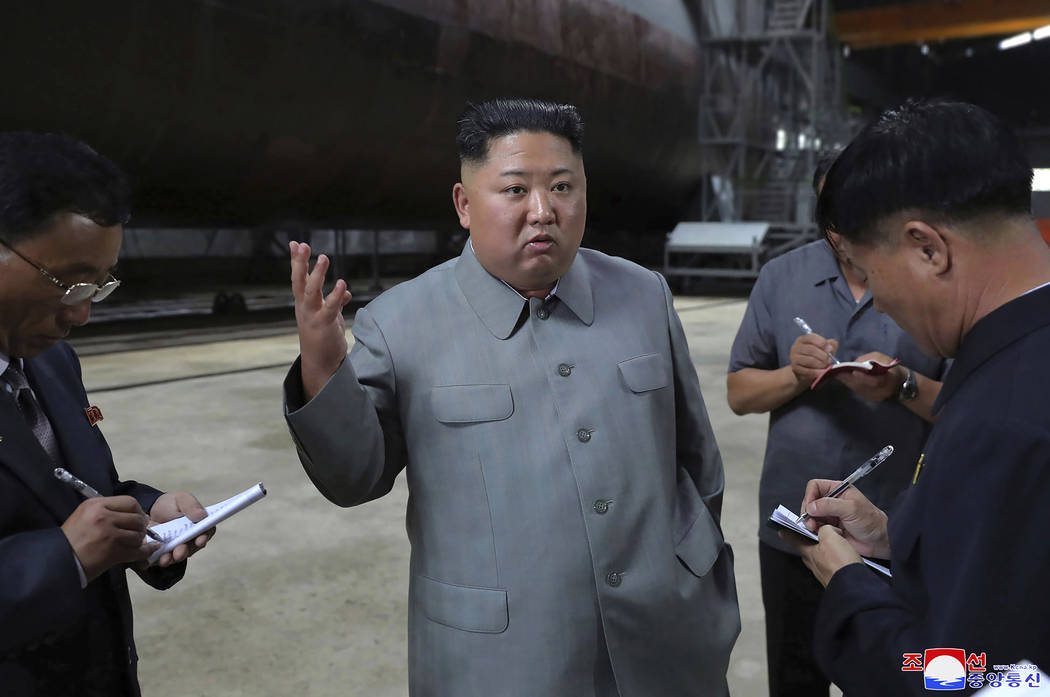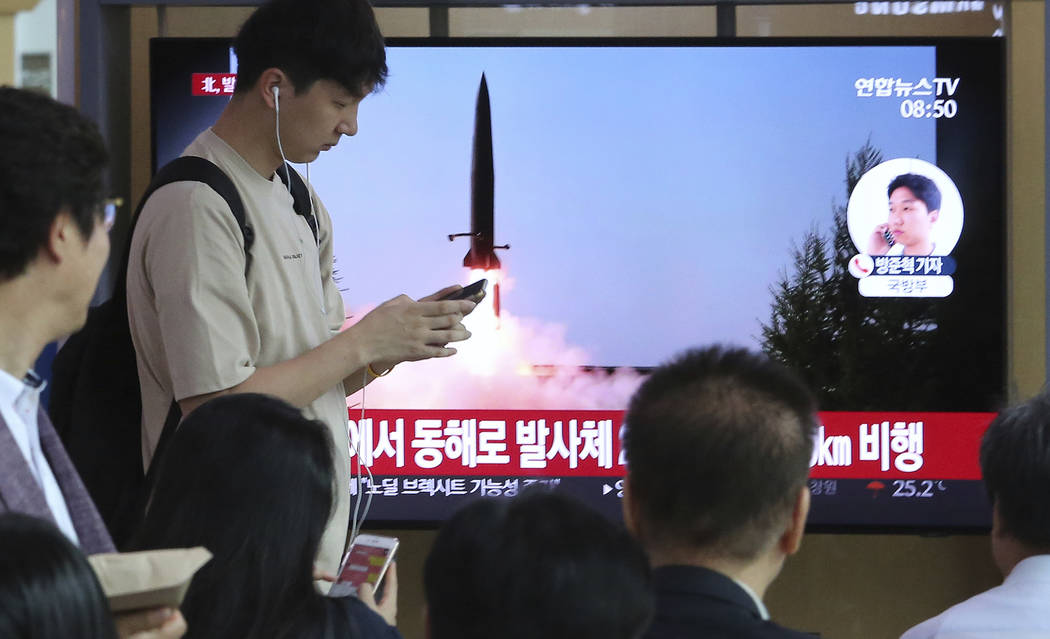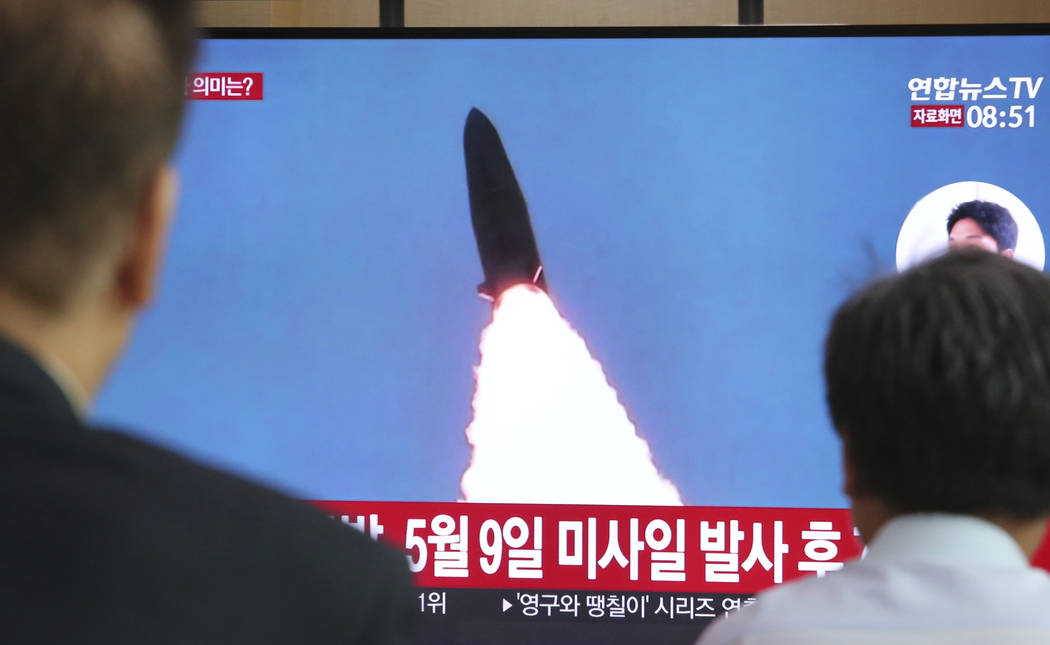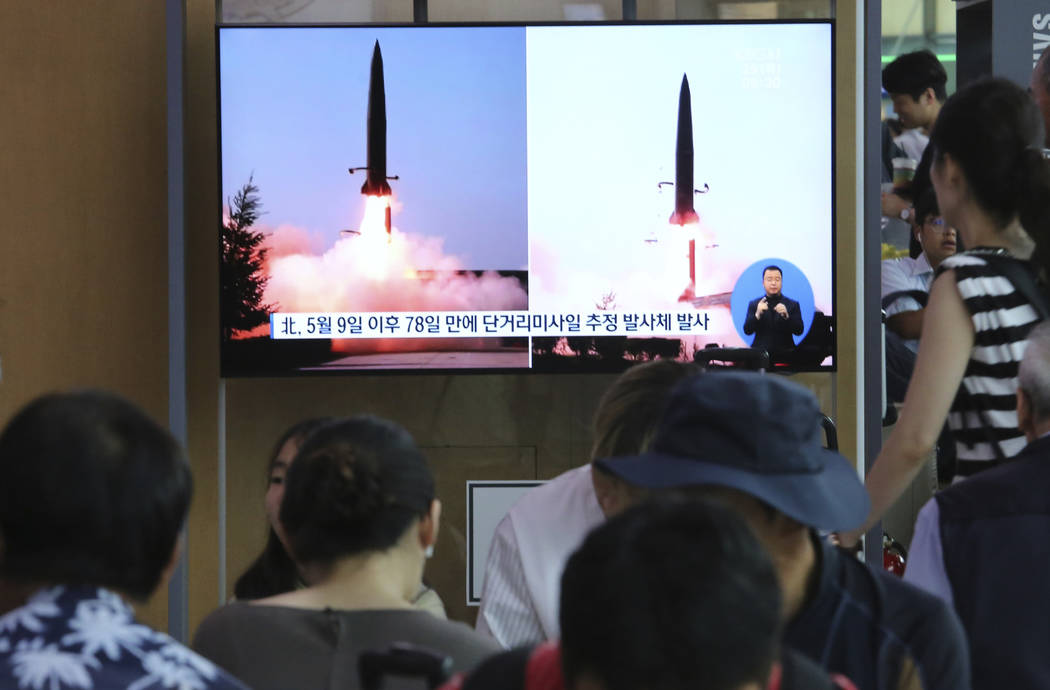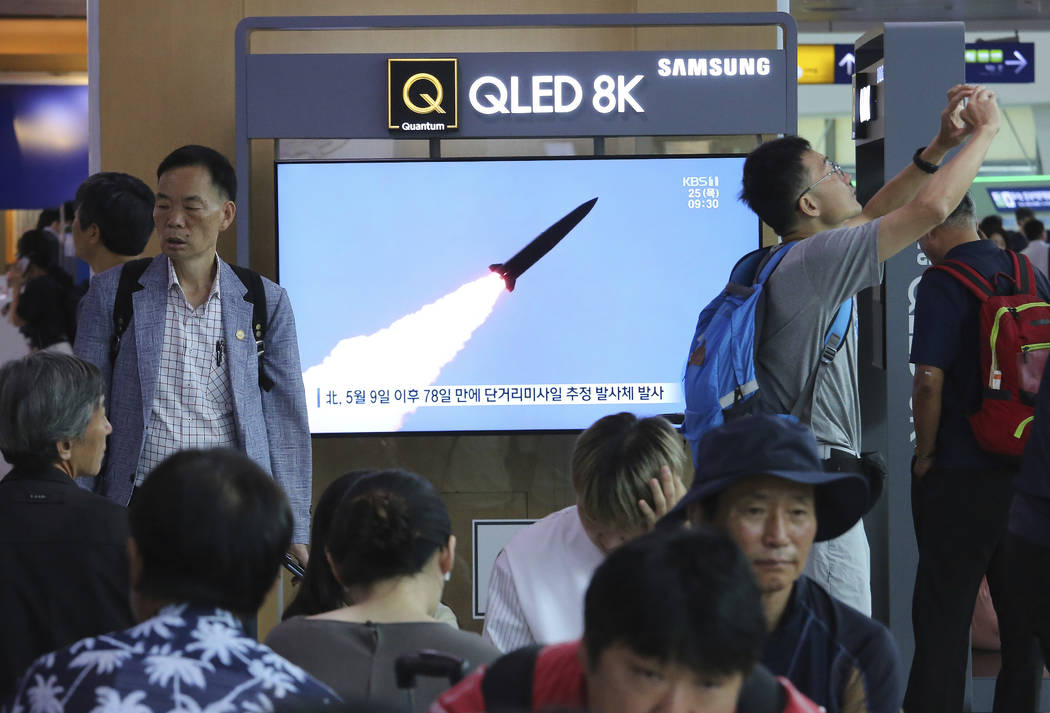North Korea calls missile test ‘solemn warning’ to South
TOKYO — A day after two North Korean missile launches rattled Asia, the nation announced Friday that it had tested a “new-type tactical guided weapon” that was meant to be a “solemn warning” about South Korean weapons development and its rival’s plans to hold military exercises.
The message in the country’s state media quoted North Korean leader Kim Jong Un and was directed at “South Korean military warmongers.” It comes as U.S. and North Korean officials struggle to set up talks after a recent meeting on the Korean border between Kim and President Donald Trump seemed to provide a step forward in stalled nuclear negotiations.
Although the North had harsh words for South Korea, the statement stayed away from the kind of belligerent attacks on the United States that have marked past announcements, a possible signal that it’s interested in keeping diplomacy alive.
It made clear, however, that North Korea is infuriated over U.S.-South Korean plans to hold military drills this summer that the North says are rehearsals for an invasion and proof of the allies’ hostility to Pyongyang.
The message was gloating at times, saying the test “must have given uneasiness and agony to some targeted forces enough as it intended.”
South Korean Defense Ministry spokeswoman Choi Hyunsoo on Thursday urged the North to stop acts that are “not helpful to efforts to ease military tensions on the Korean Peninsula.”
The North’s firing of what the South called a new type of short-range ballistic missile in two launches into the sea Thursday was its first weapons launches in more than two months.
The South’s Joint Chiefs of Staff said the missiles were fired from near the eastern coastal town of Wonsan and flew about 430 kilometers (270 miles) and 690 kilometers (430 miles), respectively, before landing off the country’s east coast.
A South Korean defense official, requesting anonymity because of department rules, said an initial analysis showed both missiles were fired from mobile launchers and flew at a maximum altitude of 50 kilometers (30 miles).
The North’s statement Friday said the weapons had “rapid anti-firepower capability” and “low-altitude gliding and leaping flight orbit … which would be hard to intercept.”
Kim was paraphrased as saying that the North “cannot but develop nonstop super powerful weapon systems to remove the potential and direct threats to the security of our country that exist in the south.”
North Korea is banned by U.N. Security Council resolutions from engaging in any launch using ballistic technology. While the North could face international condemnation over the latest launches, it’s unlikely that the nation, already under 11 rounds of U.N. sanctions, will be hit with fresh punitive measures. The U.N. council has typically imposed new sanctions only when the North conducted long-range ballistic launches, not short-range ballistic launches.
U.N. Secretary-General Antonio Guterres called for the swift resumption of talks between the United States and North Korea following the new missile launches.
North Korea has been urging the U.S. and South Korea to scrap their military drills. Last week, the North said it may lift its 20-month suspension of nuclear and long-range missile tests in response.
Seoul said Wednesday that North Korea was protesting the drills by refusing to accept its offer to send 50,000 tons of rice through an international agency.
North Korea also may be trying to get an upper hand ahead of a possible resumption of nuclear talks. Pyongyang wants widespread sanctions relief so it can revive its dilapidated economy.
U.S. officials demand North Korea first take significant steps toward disarmament before they will relinquish the leverage provided by the sanctions.
“North Korea appears to be thinking its diplomacy with the U.S. isn’t proceeding in a way that they want. So they’ve fired missiles to get the table to turn in their favor,” said analyst Kim Dae-young at the Korea Research Institute for National Strategy.
A senior U.S. official said the Trump administration knew about the launches. The official, who spoke on condition of anonymity to provide a response, said the administration had no further comment.
“If they were ballistic missiles, they violate the U.N. resolutions, and I find it extremely regrettable,” Japan’s Defense Minister Takeshi Iwaya told reporters in Tokyo.
China, the North’s last major ally and biggest aid provider, said both Washington and Pyongyang should restart their nuclear diplomacy as soon as possible.
It was the first missile launch since Seoul said North Korea fired three short-range missiles off its east coast in early May. At the time, many experts said those missiles strongly resembled the Russian-designed Iskander, a short-range, nuclear-capable ballistic missile that has been in the Russian arsenal for more than a decade.
Analyst Kim Dong-yub at Seoul’s Institute for Far Eastern Studies said the latest missiles could be Scud-C ballistic missiles or KN-23 surface-to-surface missiles, a North Korean version of the Iskander.
Kim reported from Seoul. Associated Press writers Deb Riechmann in Washington, Mari Yamaguchi in Tokyo, Edith M. Lederer at the United Nations and researcher Liu Zheng in Beijing contributed to this report.



